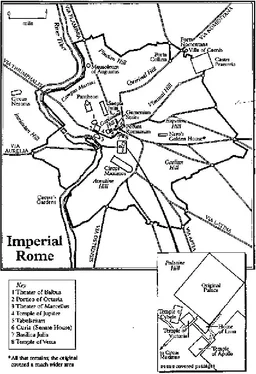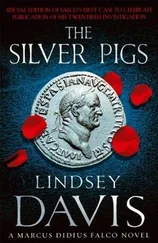Lindsey Davis - The course of Honor
Здесь есть возможность читать онлайн «Lindsey Davis - The course of Honor» весь текст электронной книги совершенно бесплатно (целиком полную версию без сокращений). В некоторых случаях можно слушать аудио, скачать через торрент в формате fb2 и присутствует краткое содержание. Жанр: История, на английском языке. Описание произведения, (предисловие) а так же отзывы посетителей доступны на портале библиотеки ЛибКат.
- Название:The course of Honor
- Автор:
- Жанр:
- Год:неизвестен
- ISBN:нет данных
- Рейтинг книги:5 / 5. Голосов: 1
-
Избранное:Добавить в избранное
- Отзывы:
-
Ваша оценка:
- 100
- 1
- 2
- 3
- 4
- 5
The course of Honor: краткое содержание, описание и аннотация
Предлагаем к чтению аннотацию, описание, краткое содержание или предисловие (зависит от того, что написал сам автор книги «The course of Honor»). Если вы не нашли необходимую информацию о книге — напишите в комментариях, мы постараемся отыскать её.
The course of Honor — читать онлайн бесплатно полную книгу (весь текст) целиком
Ниже представлен текст книги, разбитый по страницам. Система сохранения места последней прочитанной страницы, позволяет с удобством читать онлайн бесплатно книгу «The course of Honor», без необходимости каждый раз заново искать на чём Вы остановились. Поставьте закладку, и сможете в любой момент перейти на страницу, на которой закончили чтение.
Интервал:
Закладка:
Spanish troops had reached Galba. Otho was acclaimed by the Praetorian Guards. The German army raised Vitellius; now in Judaea the Fifth, Tenth, and Fifteenth Legions sat in their camps deprived of action, all talking politics. Soldiers should never be allowed to do that. Yet Vespasian held his men in a firm discipline. He made no move; neither did they. Titus and Mucianus continued their private pressure for long hours in Vespasian's tent.
* * *
Otho's reign was so short, only four months, that Vespasian's views on him as a "pea-brained Neronian pimp," which he wrote to Caenis, were soon redundant. When Aulus Vitellius pranced through Gaul to snatch the Empire like a bullying child with a coveted toy, Vespasian grew more angry. Both he and his campaign-hardened soldiers were seized with indignation. Vitellius in his youth had been one of the aristocratic boys who entertained Tiberius in debauchery on Capri. He had raced chariots with Caligula. He was a glutton. He was a drunkard. Now he was being carried toward Rome in extravagant triumph, crossing rivers in barges wreathed with garlands while a huge train of hangers-on made merry at the expense of the populace, looting and terrorizing the countryside. It accorded ill with the Sabine ideal of public service.
Even Vespasian did nothing. Having drawn up his three legions to take the oath of allegiance to their new Emperor Otho, four months later he drew them up again, himself expressionless, and made them take the oath to Vitellius. His behavior on both occasions was exemplary. It was the soldiers, normally so boisterous at accessions, who when called upon to swear their allegiance just stood in their ranks in devastating silence. They stared at Vespasian; Vespasian stared back at them. Their mood was plain. Everyone present could see the commander in Judaea was genuinely moved.
Still he did nothing. He knew that to seize power was the first step only; holding it posed a very different task. He was instinctively modest. He listened to the appeals of his friends; he considered the risks. He remained withdrawn, watchful, apparently calm, although Titus knew, and Caenis could imagine, how the real state of his mind was highly active and alert. Many men know when to act; a few know when to wait. Vespasian let Otho and Vitellius fight it out among themselves.
Otho died well. Lurking in Brixellum he heard how, despite earlier successes and the ill-preparedness of the German troops, his own army had been crushed at Bedriacum. He made the brave decision not to expose his supporters to further bloodshed. After encouraging his staff and making arrangements for their escape, he burned his official correspondence, attended to his private affairs, then retired to his quarters. He drank a glass of cold water, tested the points of two daggers, placed one beneath his pillow, and spent a last quiet night. At dawn he awoke and stabbed himself fatally once. He received an unpretentious funeral and a monument so modest it belied how far his reputation had been redeemed by his courageous death.
Vitellius stood mocking at Otho's simple monument; that summed up Vitellius.
It was in Moesia that three legions who had been hastening to Otho's support heard he was dead; heard that Vitellius was pronounced Emperor by the German legions; rejected the Germans; rejected Vitellius; and without anybody asking them for the favor, decided that Moesia would announce a candidate of its own. The theory was fine; they only had to choose their man.
The legions in Moesia, who happened to include the Third Gallica, a group of stout characters recently sent there from Syria, sat down sensibly with a list of all the Roman governors and senior ex-consuls who might be eligible for their support. One by one they crossed these off as unsuitable. At the end a single name remained. They held a democratic vote. The man's popularity was unanimously confirmed. The legions in Moesia methodically stripped their standards of the plaques that bore the dead Otho's name, then nailed up instead the title of the new Emperor they had chosen for themselves.
His name was:
VESPASIAN
On 1 July, Tiberius Alexander, the Prefect of Egypt, to whom Vespasian had written tentatively sounding out his views, made those views plain. Alexander was an equestrian who had risen to great position; he had started life as a freedman of Antonia's, so he had an inevitable loyalty to those who had enjoyed her patronage. Tiberius Alexander called upon his own legions to hail Vespasian as Emperor.
Meanwhile the legions in Moesia were persuading their neighbors in Pannonia to join their cause; their Pannonian neighbors encouraged the legions in Dalmatia to do the same. One by one provinces and kingdoms followed them—Asia, Achaea, Cappadocia, and Galatia—until a complete crescent surrounding the far end of the Mediterranean had declared for the eastern Emperor. Spain was friendly to Vespasian; Britain too. On the morning of 3 July in Judaea, Vespasian's own soldiers decided of their own accord to stop greeting him as Governor. When he came out from his bedroom his bodyguard exchanged quick glances, saluted him: "Caesar!" ; then defied him to put them all on a charge.
Vespasian spoke to them quietly, in his soldierly manner. The word spread: He had accepted the nomination. On the same day, without even waiting for Titus to return from a liaison trip to Syria, he received the oath of allegiance himself from his own delighted troops. It was reported to Caenis that Vespasian had looked pleased but bewildered.
In Rome, Vitellius censored any mention of Vespasian's name. It was pointless; everybody knew. There would be another civil war. If Vespasian lost it he, his two sons, probably his brother, and possibly even his brother's children too, would die. If he died, far away, Caenis would not even attend his funeral.
If he survived, it would be far worse for her.
She believed there was no better man in the Empire to undertake this role. She also knew there would be no question any longer that Vespasian could allow a freedwoman to share his life. Like Nero's Actë, as a common girl who bore no grudges she might be suitable to entertain him occasionally—but only within carefully defined sexual limits. The very qualities that had once brought him back to her, the decent temperament that made him ideal to govern, would inevitably take him from her now. Vespasian would behave as an emperor should. Their fine, equal partnership would be broken. She had received from fortune the greatest gift she could ever expect. She had enjoyed it for longer than a decade; now she had to give it back.
She said to Aglaus, when she granted him his freedom, "I have decided it would be best if I moved back to my own house in the Via Nomentana. Perhaps you could mention it for me to the leaseholder."
Aglaus knew she had continued to pay her ground rent all this time. He had arranged it for her himself. It was supposed never to be mentioned, though Aglaus understood that Vespasian knew. Two men together, Vespasian and Aglaus had quietly agreed: independent, that one. She did not trust her luck. She had had every faith in Vespasian, but none in life.
Aglaus was an excellent steward; he had paid her rent discreetly and refrained from teasing her. Caenis was therefore surprised, even though his new status as a free citizen allowed him greater frankness, when he replied bleakly, "I think you'll want to explain that to the leaseholder yourself."
Not for the first time that year, Caenis went cold.
Aglaus braced himself and told her: "Well, it's not necessary, actually. The lease was acquired by someone else. Vespasian bought it, just before you went to Africa; that was one of the reasons he was so short of cash. He told me, and told me to explain it to you if anything ever happened to him—I don't think the present business was what he really had in mind! He rewrote his will at the same time to provide for you, but he wanted you to have something of your own in case anything went wrong. The estate is yours; it's been yours for years. He bought it, but the deeds are in your name."
Читать дальшеИнтервал:
Закладка:
Похожие книги на «The course of Honor»
Представляем Вашему вниманию похожие книги на «The course of Honor» списком для выбора. Мы отобрали схожую по названию и смыслу литературу в надежде предоставить читателям больше вариантов отыскать новые, интересные, ещё непрочитанные произведения.
Обсуждение, отзывы о книге «The course of Honor» и просто собственные мнения читателей. Оставьте ваши комментарии, напишите, что Вы думаете о произведении, его смысле или главных героях. Укажите что конкретно понравилось, а что нет, и почему Вы так считаете.












